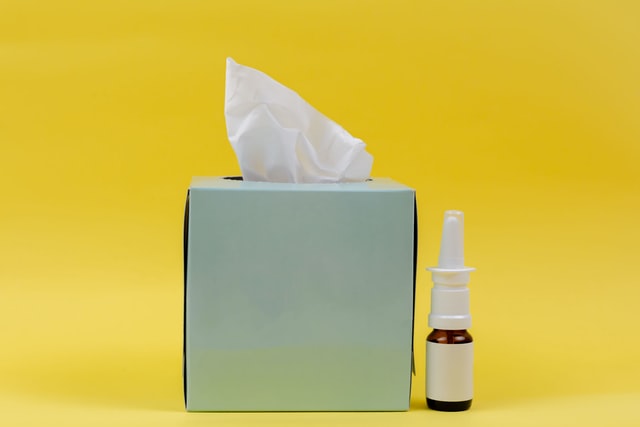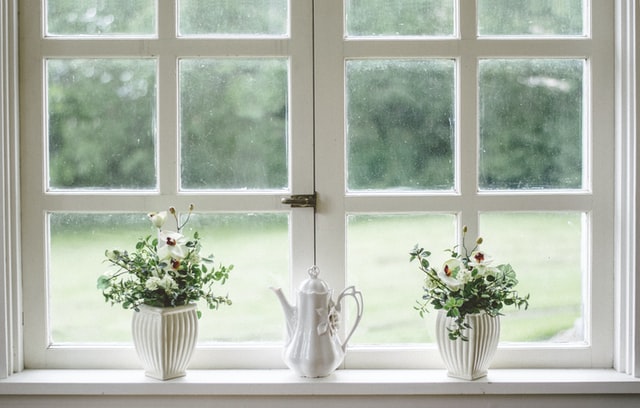How To Take Care Of Yourself This Allergy Season
Spring is in the air — and so is seemingly every type of pollen ever known to humankind. What can you do if you find yourself singing “Rudolph the Red-Nosed Reindeer” in May and June?
A little self-care can go a long way toward easing your discomfort. Here’s how to take care of yourself this allergy season and find relief from all that sniffling and sneezing.
1. Discover Your Mouth-Breathing Causes
Are you a mouth-breather? You might be if allergies make it challenging to breathe through your nose. Seasonal allergies increase your odds of developing nasal polyps, which can make it impossible to inhale deeply.
If you frequently wake up with your mouth tasting like you’ve been sucking on cotton all night, you might mouth-breathe in your sleep. Pay heed if your partner accuses you of snoring. You could also develop bad breath that gum and tooth-brushing don’t touch if you breathe through your mouth. The air dries up saliva that otherwise washes away bacteria.
If you experience these symptoms, book an appointment with your doctor. They can see if a structural problem or an allergic reaction lurks behind your congestion. They will recommend the right treatment regimen to get you maximum relief with minimal side effects.
2. Take Preventative Medicine
When your body encounters an allergen, your immune system launches a chain reaction. It tells your body to release histamines, which increase blood flow and inflammation in the affected area. If this effect happens in your nasal passages, it gives you a stuffy nose.
Antihistamines, like the over-the-counter versions you find at stores, can help counter the effect of histamines. However, they don’t work very effectively when you take them after inflammation occurs. Therefore, you should start on a medication regimen each morning before you step outside in the wind.
Decongestants can help act as an abortive medication when a stuffy nose still strikes. However, you should think twice before resorting to over-the-counter nasal sprays containing oxymetazoline. Many of these cause a rebound effect when your body gets used to the medicine, resulting in worse stuffiness when you withdraw. If you do use these products, do so for no more than three days in a row.

3. Try Some Folk Wisdom
While science has yet to prove the efficacy of local honey for easing allergy symptoms, many people swear by this folk remedy. Why not see if it works for you? For the best effects, you need to locate a local beekeeper so that the insects cultivate the same pollen causing you misery.
Some people claim that peppermint and eucalyptus essential oils help ease their allergy symptoms. Others swear by herbs like butterbur and stinging nettle to bring relief. Improving your diet and including more quercetin-rich foods like broccoli may help regulate your body’s inflammatory response and ease symptoms.
4. Clean And Change Your Filters
When was the last time you changed the air filters in your home or apartment? If you haven’t yet done so after the long winter of indoor-air breathing, please visit your local hardware store for a replacement without delay.
Experts recommend changing your filter every two to three months, but you may need to do so more frequently, depending on the conditions in your home. If you have smokers or pets residing with you, you may need to swap your air filter as often as every month. If so, try coordinating the switch with your rent or mortgage payment to make it a snap to remember.
5. Keep Your Windows Closed
Once warmer weather arrives, you might relish the opportunity to throw up the sash and let some fresh air into your home. While you may want to do so temporarily to improve ventilation, your allergies prefer a clean HVAC system.
If finances prohibit you from running your attic fan when a breeze will do the trick, try installing a pair of gauzy blinds. These will allow air to flow while catching some of the pollen that makes you sneeze.

6. Carry Hygiene Supplies
The worst part about allergy season is when a sneeze catches you unawares, and there isn’t a tissue or scrap of paper towel in sight. Hello, sleeve. Ew.
If you want to enjoy a more comfortable allergy season, start carrying supplies with you. Your local dollar store carries miniature packages of tissues — stock up and stash a package everywhere from your glove box to your desk drawer. Eye drops relieve itchiness and soreness, and cough drops help you soothe throats that grow achy from too much mouth-breathing.
Take Care of Yourself This Allergy Season With These Tips
A little self-care can go a long way toward making you scoff at high pollen counts. Take care of yourself this allergy season with these tips.
*collaborative post
This article was originally published by artofhealthyliving.com. Read the original article here.




